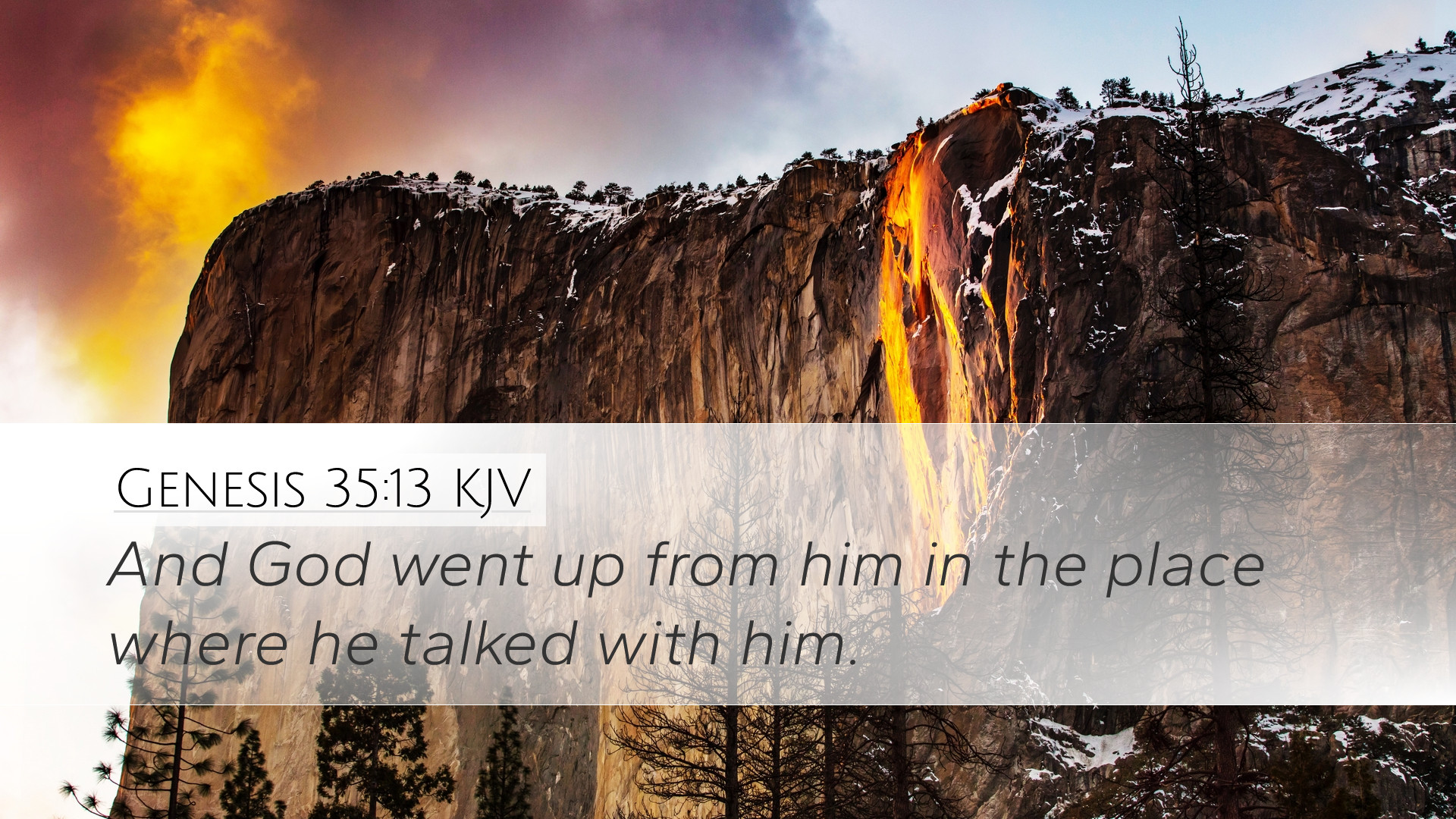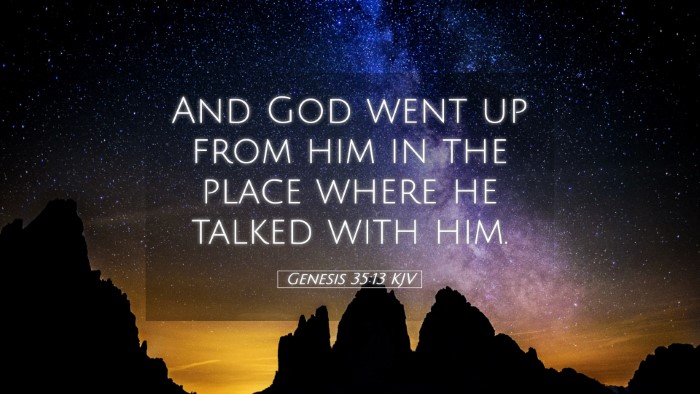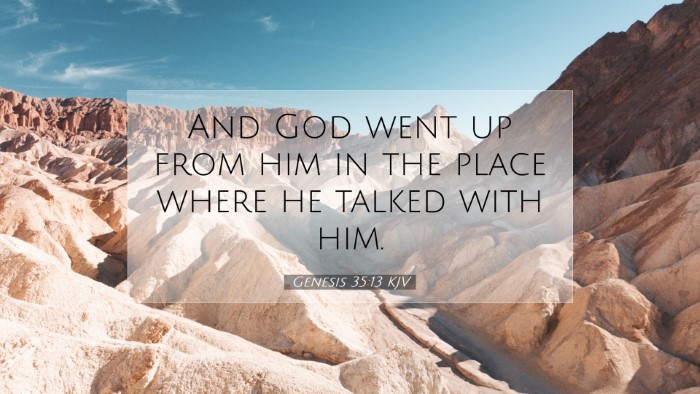Commentary on Genesis 35:13
Genesis 35:13 states, "And God went up from him in the place where he talked with him." This verse captures a profound moment between God and Jacob, culminating a significant encounter that carries deep theological and personal implications.
Context and Significance
This passage occurs after Jacob's return to Bethel, where he renews his covenant with God. The journey comes on the heels of a tumultuous life filled with struggle, deception, and divine encounters.
Insights from Matthew Henry
Henry notes that this moment follows God’s revelation, emphasizing that divine communication is often personal and transformative. The statement that God "went up" symbolizes not only the divine presence but also the idea of God's approach being ephemeral yet impactful.
- Divine Conversation: Henry emphasizes the relational aspect of God's communication. God speaks to Jacob, affirming his identity and destiny, which reflects the broader Christian understanding of God's desire for relationship with humanity.
- Response of Worship: The verse illustrates Jacob's response to God's presence; he understands the sacredness of the moment, which prompts both reverence and commitment.
Insights from Albert Barnes
Barnes elaborates on the theological implications of God’s departure. He asserts that God’s presence is not tied to a specific locality but is available through faith and obedience. This departure also signifies an important transition, transforming the moment of communication into a lasting covenant affirmation.
- The Nature of Divine Encounter: Barnes highlights that God's presence is both powerful and merciful, reminding us that divine encounters often lead to profound spiritual transformations.
- Covenantal Significance: The ascension of God symbolizes the establishment of expectations and responsibilities tied to God's promises, emphasizing the assurance that He remains with His people even when they cannot see or feel His presence.
Insights from Adam Clarke
Clarke takes a more practical approach, delving into the significance of this moment for Jacob as a patriarch. He emphasizes that such encounters with God are foundational for understanding one's identity and purpose.
- Transformation and Identity: Clarke discusses how Jacob's understanding of self evolves through encounters with the divine, illustrating a broader theme of transformation in one’s spiritual journey.
- Legacy of Encounter: The idea that God "went up" can be seen as a call to Jacob and his descendants to live out the covenantal promises and maintain their relationship with God through faithfulness and obedience.
Theological Themes
This verse encapsulates several critical theological themes:
- Immanence and Transcendence: The movement of God emphasizes His transcendence while affirming His immanence in human affairs, suggesting that God is both intimately involved and sovereign over history.
- Covenantal Relationship: The act of God 'going up' signifies a transition, reinforcing the covenant established with Jacob and his descendants, which remains a central theme throughout Scripture.
- Spiritual Growth: Jacob's journey reflects the broader theme of spiritual growth within the believer’s life, marked by moments of encounter with God that transform understanding and commitment.
Practical Applications
For pastors, theologians, and students, this passage is rich with opportunities for practical application:
- Encouraging Personal Encounters: Emphasize the importance of personal encounters with God in spiritual growth, encouraging believers to seek moments of communion with Him.
- Teaching Covenant Theology: Use this verse to illustrate the principles of covenant theology, demonstrating how God’s promises shape the identity and mission of His people.
- Promoting Faithfulness: Highlight the call to faithfulness in light of God’s initiatives in our lives. Jacob's response serves as a model for how believers should engage with God's ongoing revelations.
Conclusion
Genesis 35:13 encapsulates a pivotal moment for Jacob and serves as a metaphor for the ongoing relationship between God and humanity. Through insights from various commentators, we glean a holistic understanding of the verse, addressing not only its historical and theological significance but also its applicability in the contemporary faith journey.


